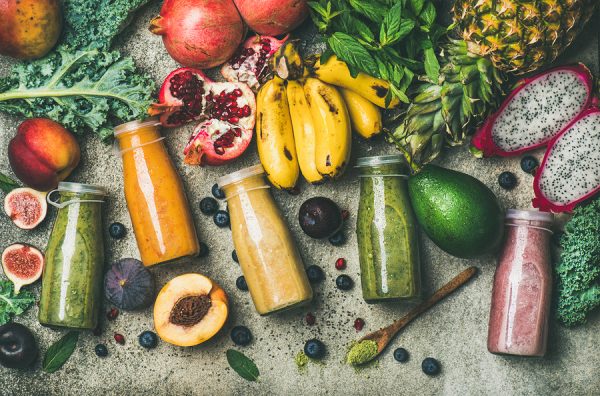Detoxing with Diabetes: Is it Safe?

If you’ve been reading or hearing about detox diets and cleanses, you might be wondering if a detox is right for you. But is detoxing safe? Does it really work? And how might it affect your diabetes?
Detox demystified
The word “detox” is short for detoxification. The purpose of detoxing is to remove toxins from your body, including harmful substances from the environment or your body’s own waste products, like ammonia and lactic acid.
While the idea of detoxing is very appealing (after all, who wants toxins in their body?), the reality is that there isn’t much evidence that it works. Besides, the body has its own built-in detoxing ability. The liver, kidneys and the intestines remove harmful substances naturally. Kidneys filter out waste and chemicals, the liver neutralizes bad stuff and renders it into smaller particles that are then excreted in the urine or stool. Intestines have healthy bacteria, called probiotics, that help keep the immune system working, fend off toxins, and even breakdown substances that might cause cancer.
Detox downside
But what if your intestines, liver or kidneys aren’t in great shape? Should you do something to help them detox your body? Maybe it is a good idea to try a juice cleanse. Or is it?
Before you reach for a high-priced, cold-pressed bottle of juice, or dust off your blender and fill your fridge with wheatgrass, kale and ginger, consider the downsides of detoxing:
- If your goal is to lose weight, realize that while you might lose weight on a 3-or 10-day cleanse, you’ll very likely gain that weight back once you return to eating food. If you extend your detox, your metabolism might slow down and you could lose important lean muscle mass, which, in turn, can lead to weight gain.
- Juicing, which is a popular way to detox, is expensive, whether you purchase pre-made juices or make own. Expect to pay a lot, either way.
- Speaking of juices – unless you’re only drinking vegetable juices, you will be ingesting a considerable amount of carbohydrate, which can affect your blood sugars. Most fruit juices contain, on average, between 30 and 40 grams of carb per 8 ounces.
- Detox plans are not nutritionally balanced. While this may not be a major concern for a 1-3 day detox, longer detoxes can lead to nutrient deficiencies. Detoxing can cause fatigue, headaches and irritability. Some detox plans promote the use of herbal supplements or teas that act as laxatives, causing nausea and diarrhea in an attempt to “cleanse” your colon. Overuse of laxatives can lead to electrolyte imbalances and dehydration.
- Detox diets and cleanses aren’t recommended for people who have certain health conditions, such as heart disease or diabetes, for pregnant women, or for anyone who has an eating disorder.
Rethinking that detox
If the idea of a detox or cleanse still appeals to you, why not just consider a cleaner way of eating? No one wants toxins in their bodies, but depriving yourself of good nutrition and subsisting on a steady diet of lemon water and cayenne pepper isn’t the way to good health. Plus, it’s not sustainable. Remember, too, that your liver, kidneys and gut need nutrients to function properly. Here are suggestions for adapting a “cleaner” way of eating that can promote health and make it easier for you to manage your diabetes at the same time:
- Focus on whole foods. No, you don’t have to shop at Whole Foods, but aim to eat foods in their whole form as much as possible – fresh or frozen vegetables and fruit, whole grains, unprocessed meat, poultry and fish, nuts and seeds, and vegetable oils.
- Cut back on salt and sugar. Season foods with herbs and spices. Choose fresh fruit with a lower glycemic impact, such as berries, to satisfy a sweet tooth.
- Don’t overdo the protein. Too much protein in the diet can increase the workload for your kidneys.
- For gut health, eat foods that contain probiotics – yogurt with active cultures, kefir, miso, tempeh and sauerkraut.
- Limit caffeine and alcohol.
- Don’t forget other lifestyle measures, such as getting enough sleep, stopping smoking, and being physically active most days of the week.
Finally, if you are thinking about making a change to your eating plan, talk with your doctor, find out if your diabetes medicines need adjusting, and be sure to check your blood sugars regularly.

